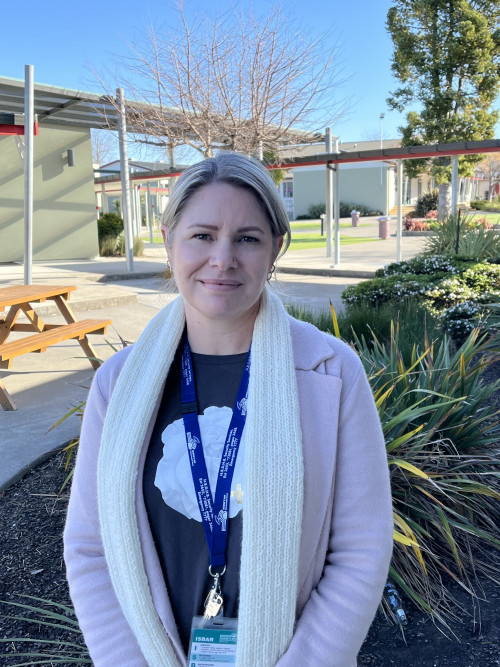
Helping ease the load off GPs and improving healthcare access are benefits of Hawke’s Bay’s registered nurse prescribing programme, says the first participant to complete it.
Nursing Council of New Zealand last year endorsed Te Whatu Ora – Health New Zealand, Te Matau a Māui Hawke’s Bay to run the Registered Nurse Prescribing in Community Health programme, which started in January.
Twenty-seven registered nurses are enrolled in the programme. Karamu High School Public Health Nurse Fran Bayley is the first to gain the council’s approval to prescribe about 80 medications to treat infections, sexual health and other conditions.
Ms Bayley, 43, says the programme broadens registered nurses’ scope, and helps break down barriers between patients and primary healthcare.
“It’s helping take the load off GPs and improving equity and access for patients,” says Ms Bayley, who works at Flaxmere Community Health clinic during school holidays and also helps deliver school-based immunisation programmes.
“Previously, if a patient had a urinary tract infection nurses could take a urine sample and diagnose it but we wouldn’t be able to treat them, instead having to send the patient off to a GP,” she explains.
“Whereas now we can give the treatment as well so it just gives nurses more autonomy.”
Counties Manukau was the first to pilot the programme in 2017. The programme equips registered nurses to prescribe from a list of about 80 medications for contraception and sexual health, infections (i.e. ear, throat, skin etc.), eczema, headlice, rheumatic fever and other conditions.
Registered nurses must have at least three years’ experience in their role to enrol in the programme.
Ms Bayley says participants have plenty of support throughout the programme and beyond.
“We each had a dedicated clinical supervisor to reflect and analyse cases with to help give us that confidence that we are on the right track,” she says.
“We can also draw from a range of online resources such as Clinical Pathways, which gives step-by-step guidance about treatment medications.”
Participants must complete: 30 hours of online training modules; in-class training; 12 hours of face-to-face supervision; a clinical log that looks at what they could do as a registered nurse versus as a prescriber; data gathering and analysis of patient interactions; and a portfolio including two case studies and 10 extra Nursing Council competencies.
Programme Lead Helen August says the 14 public health nurse and 13 practice nurses enrolled in the programme have until October to submit their portfolios.
The participants work for a variety of employers including Te Whatu Ora Hawke’s Bay, general practices or other community healthcare organisations.
“The Nursing Council endorsed Te Whatu Ora - Hawke’s Bay to act as the umbrella organisation providing clinical governance for the programme, so we manage coordination, education, assessment and credentialing,” says Ms August, Te Whatu Ora - Hawke’s Bay Nurse Practitioner.
“The programme was set up to improve the health of Hawke’s Bay’s tamariki and whānau. It also helps our nurses work to the top of their scope, so therefore our community are getting the best possible service from our nurses, who know that population.”
Photo caption: Karamu High School Registered Nurse Fran Bayley






Post your comment
Comments
No one has commented on this page yet.